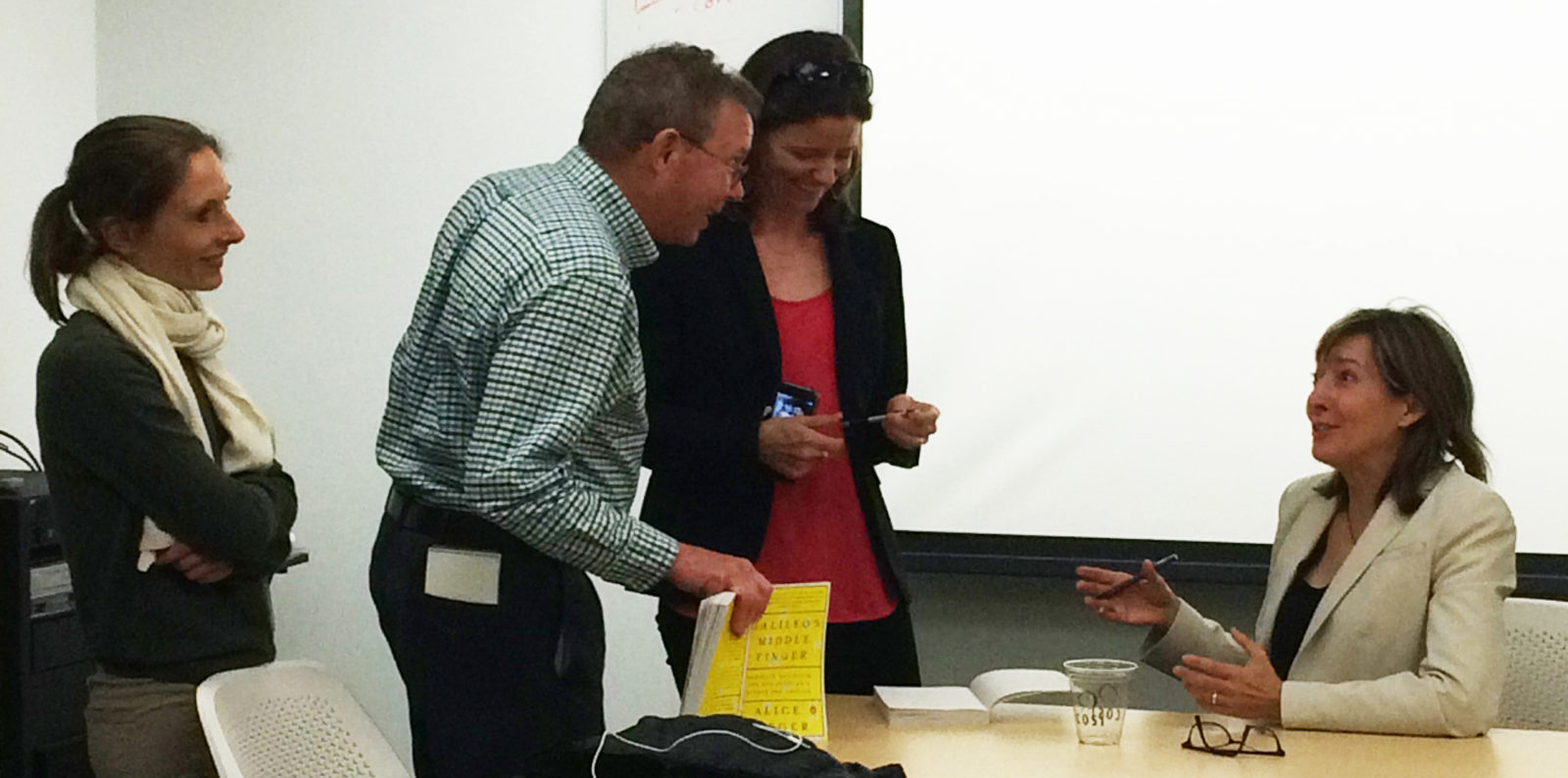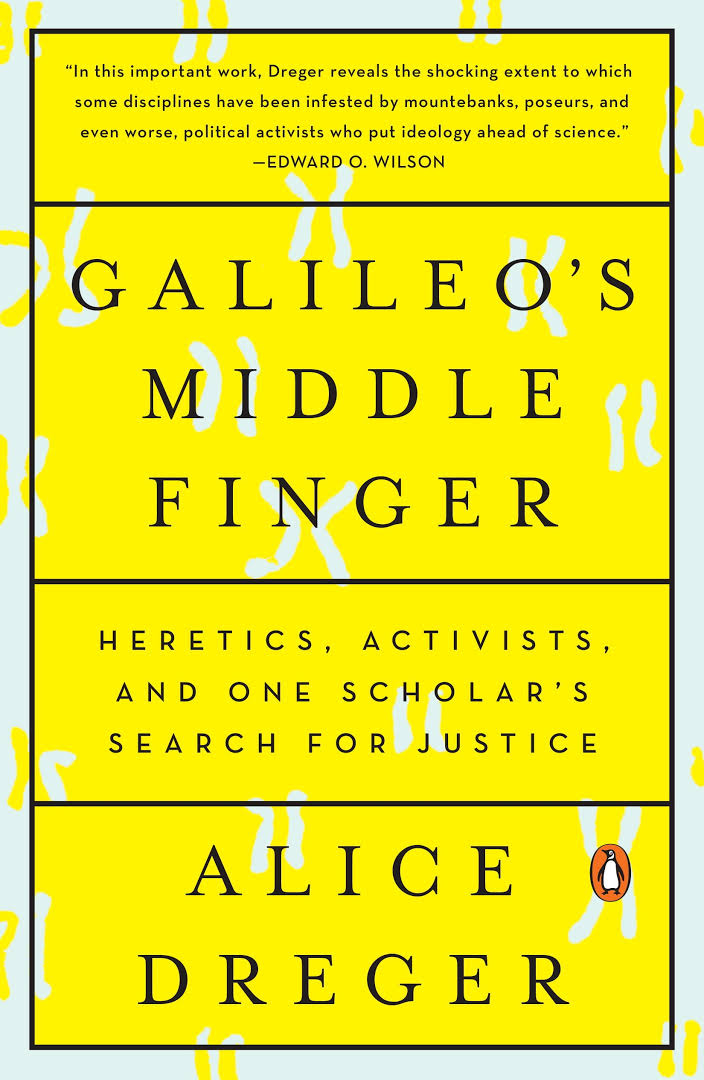
Alice Dreger is no stranger to controversy. As a science writer, she maintains that people need to hear the facts, no matter how challenging and upsetting — thus the title of her latest book, “Galileo’s Middle Finger,” published in 2015. Dreger visited the Knight Science Journalism fellows on October 6 to discuss the importance of investigative journalism, as well as her (multifaceted) profession.
Dreger considers herself a science historian, writer, sex researcher, and patient advocate. How does one person have time to fill so many roles? “I don’t have a job, so that helps,” she said with a laugh. “I gave up my tenured position at Northwestern in 2004 to do more interesting things.”
At the center of the book is Dreger’s own blistering experience with scientific controversy. She became involved in intersex politics after she completed her doctoral dissertation on the medical treatment of hermaphrodites. By the mid-90s, patients with similar conditions started contacting her, and she became further enmeshed in their cause.

It was evident to Dreger that the clinical approach used to treat these patients was often biased and unethical. She aimed to change that, and received a Guggenheim fellowship to travel the country and gather material for her book. But she soon realized the situation was not so clear-cut. Sometimes the tables were turned, and it was the scientists who needed protection from the public.
“What I was finding repeatedly was that — reminiscent of Galileo’s story — political groups were crushing researchers,” she said. “It wasn’t the church or some historical power; it was the result of the internet democratizing knowledge and science. So people who were nobodies were gaining enormous power.”
Dreger said the dark side of scientific democracy became apparent in the case of a respected psychologist, J. Michael Bailey. Bailey was assailed by transgender activists for challenging conventional wisdom about gender identity, and Dreger herself came under fire for defending him.
Still, just as the experiences early in her career had taught her, society often has a right, and even an obligation, to question what goes on behind laboratory doors. “You can’t just go around and wear the cape of science and assume that nobody’s allowed to question you,” she said.
Another part of her book takes on Maria New, a prominent pediatric geneticist at Mount Sinai in New York City who was prescribing a powerful and untested steroid, dexamethasone, to certain pregnant women in an effort to prevent a condition that could lead to intersex characteristics in their fetuses. New claimed the treatment was standard procedure, and then retrospectively used her large patient populations to secure funding from the National Institutes of Health.
Dreger said she tried to get the FDA to expose the practice, then attempted to interest the news media, but to no avail. So she did it herself. “If you don’t have investigative health reporters, you’ve got nothing,” she said. “There’s no way for people, including senators and congressmen, to know about scandals if there’s no safety system.” (In a letter to The New York Times in 2015, New said the government had investigated Dreger’s accusations and rejected them.)
For KSJ fellows without a background in investigative journalism, Dreger’s talk provided a new perspective. “A lot of these issues I haven’t dealt with directly, so it expanded my world view in that sense,” Mark Wolverton said.
Rosalia Omungo, another KSJ fellow, applauded Dreger’s courage. “She approaches taboo issues head on, and talks about things others wouldn’t normally talk about. She’s really bold,” Omungo said.
As Dreger finished “Galileo’s Middle Finger,” she said, she began to realize that American investigative journalism was in disarray. And with the coming controversy over the book, she was “going to need someplace to hide.” So in 2014 she founded East Lansing Info (ELi), a nonprofit newspaper in her hometown in Michigan. To facilitate a “rescue of the press,” she trains townspeople to be reporters.
Dreger says her next project will likely examine the collapse of small newspapers around the nation. Will she be met with controversy once again? If so, one thing is certain: She won’t shrink from it.





Leave a Reply